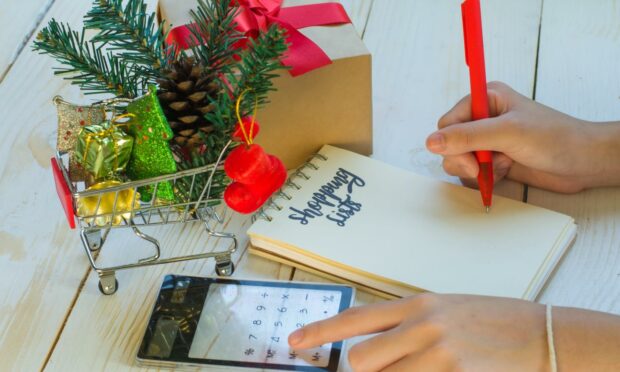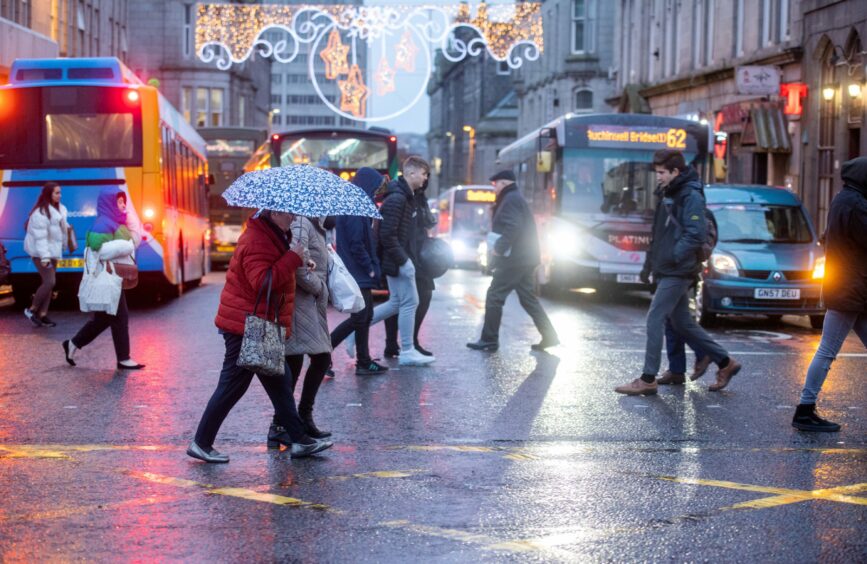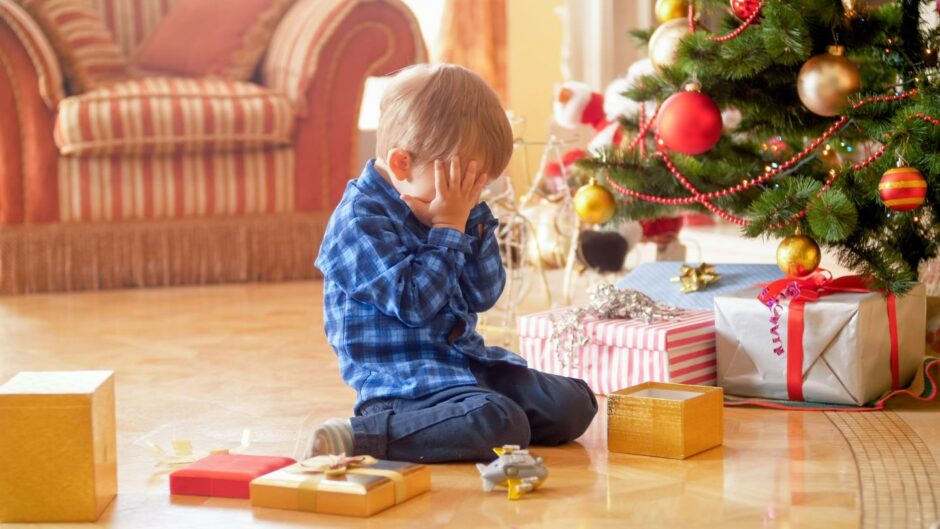Parents have been warned to resist peer pressure, with new figures showing families are spending record-breaking amounts on Christmas presents.
One of the biggest dilemmas at Christmas is how much to spend on presents for loved ones.
New research has shown that Scots plan to spend 26% more on gifts this Christmas than last year. This is despite the ongoing pandemic and continued economic uncertainty.
Scottish families plan to spend on average £700 on gifts this Christmas, according to data released by price comparison site Finder.com.
Last year, the average family spend on gifts in Scotland was £555. This was significantly higher than the UK average of £476.
2021 has been a hard year for parents and children alike, so the appetite for a special Christmas is understandable. But this can produce anxieties of its own, with two-thirds of us struggling to afford Christmas every year.
One welcome fillip in the run-up to the festive season was the £100 cash boost for families, announced by the Scottish Government last month.
Low-income households with children in school will receive the direct payment in time for Christmas.
‘Shocked when they see how much they spend’
However, an Aberdeen-based financial planner told the Press and Journal of the dangers of overspending at Christmas.
Liam Kerr, of Carbon Financial in the city, said: “How much is appropriate to spend is different for everyone.
“It should really be what’s affordable. But oftentimes that’s not the case. People don’t tend to budget for these things, or if they do they tend not to come in under budget.
“It can sometimes come as a quite a shock to our clients when they do an expenditure questionnaire and see just how much they are budgeting for Christmas.
“It’s often a lot more than they would have thought. And after the event, when they tot up everything, it’s probably more than they’ve budgeted for.”
Mr Kerr stressed the importance of avoiding taking on debt at Christmas.
Beware ‘buy now, pay later’
The Financial Conduct Authority (FCA) has clamped down on so-called ‘payday loans’ in recent times.
However, ‘buy now, pay later’ facilities have taken their place, with nearly one in ten saying they plan to buy presents in this way this Christmas. Mr Kerr thinks families should be wary of this.
“For me that’s quite a concern. Things where you don’t have to pay up front, lead to more people going for it and hoping they can meet the cost in January or February.
“That is a form of debt. They might not realise it at the time, but they might be paying things off for months afterwards. That means cutting back elsewhere during the rest of the year.”
As all parents know, peer pressure can be a particular issue in the run-up to Christmas. But giving into it at the wrong time can have devastating consequences.
“Peer pressure and expectation is a big part of it,” said Mr Kerr.
“There is a pressure to spend money at Christmas.
“It’s attractive seeing the cost of something split into three or four payments. But it’s exactly the same cost.
“And with the rates you have to pay if you fail to make a payment, and the potential impact on credit scores, it does a lot of damage, even if it looks quite innocent on the face of it.”
‘Don’t feel guilty for not having a bottomless purse’
While peer pressure is a constant issue, parents are advised to keep things in perspective.
Jeremy Todd is chief executive of parenting charity Family Lives. He said Christmas is a time to focus on what is really important.
“We receive many calls from families during the festive period,” said Mr Todd.
“Some of them feel guilty or are stressed at not being able to afford everything a child wants.
“But families shouldn’t feel guilty for not having a bottomless purse.
“Children can face real peer pressure to have the latest items.
“If it really means a lot to them, you may be able to reach a compromise with older children by sharing the cost with them through chores, or with other relatives.”
He added: “Remember all the things you give your children throughout the year. Don’t beat yourself up about not lining the pockets of multinational corporations.
“The most important gift you can give your children this Christmas is time and conversation.”
‘It’s so difficult for parents now’
Much of bringing up children involves discipline, but as Mr Kerr points out, that goes for parents too.
“The difficult thing is being disciplined enough to save throughout the year, that really is the key,” he said.
“But it is so difficult for parents now with the peer pressure.
“Parents want their kids to be happy, and it can feel like the worst thing in the world, not being able to get them what they wanted.
“It’s just the society we live in – it’s hard not to spend. But if you’re able to plan in advance, and you know that you’ve got the money there, it’s a lot more satisfying than having to take on debt.
“There’s a lot of expectation and pressure at Christmas. It’s sad that, for a long time, it’s been about ‘stuff’ and buying things.
“You can’t judge people though, as it can be an incredibly hard thing to get through with a family.
“But by putting away a bit of money each month throughout the year, you know you’ve got the money there, and you can spend it without getting into any bother.”
He added: “Unless you can cut down elsewhere, if you’re taking on debt that you can’t pay off, it’s just a really steep slope which can be really hard to get out of.
“As we all know, Christmas comes round quickly and you don’t want to be in the same position the next year.
“Those, ultimately, are the consequences of breaking the family budget.”
More from the Schools and Family team
Covid in schools: Aberdeen schools recover from closure spike
The P&J investigates: Why are other countries’ school pupils outperforming ours?
Nursery inspection reports: How does childcare in your area rate?



